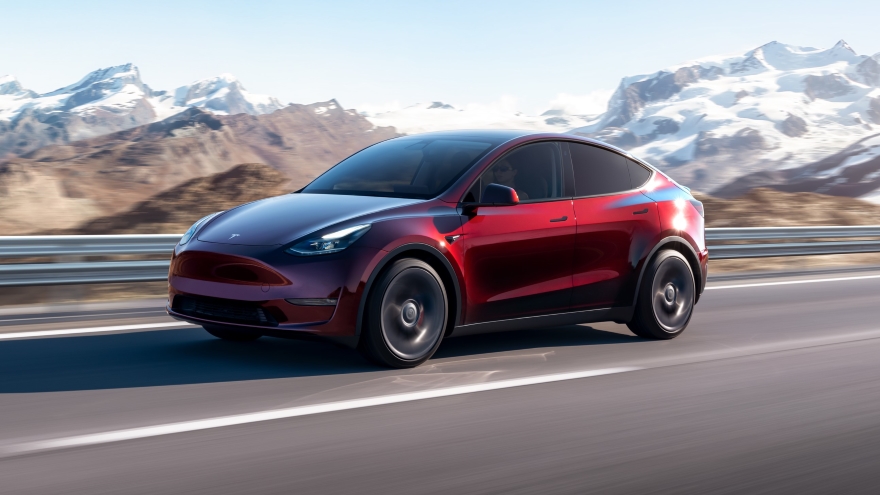Experian report shows extent of Tesla’s domination of U.S. EV market

Tesla's Model Y is America's most-owned electric vehicle. Image courtesy of Tesla.
By subscribing, you agree to receive communications from Auto Remarketing and our partners in accordance with our Privacy Policy. We may share your information with select partners and sponsors who may contact you about their products and services. You may unsubscribe at any time.
When it comes to electric vehicles in the U.S., there’s Tesla and there’s everyone else.
Experian’s Automotive Consumer Trends Report for the second quarter of 2023 confirms that fact with the finding that the automaker has four of the top five luxury EV models in terms of market share.
At the top of the list is Tesla’s Model Y SUV, which dominates with 47.36% of the market. Behind it in the rankings are the Model 3 at 27.30%, the Model X (4.42%), the BMW i4 (2.82%), and the Tesla Model S (2.53%).
The report found EV ownership is growing, with more than 2.7 million currently in operation in the U.S., up from about 1.7 million in Q2 2022. Among new vehicle registrations, 7.5% are EVs, a significant increase from 5.7% last year.
Still, even rising EV ownership doesn’t necessarily mean Americans are abandoning internal combustion vehicles. According to the report, 85% of EV owners also own a gas-powered vehicle, while 11 percent also own a hybrid vehicle.
“Although EVs are growing in popularity, it’s natural for some consumers to still opt for a secondary vehicle,” Experian director of product marketing for automotive Kirsten Von Busch said in a news release. “With fewer charging stations in some states, they might feel more comfortable with a gas-powered vehicle.
Subscribe to Auto Remarketing to stay informed and stay ahead.
By subscribing, you agree to receive communications from Auto Remarketing and our partners in accordance with our Privacy Policy. We may share your information with select partners and sponsors who may contact you about their products and services. You may unsubscribe at any time.
“As the infrastructure continues to develop, understanding consumers’ needs will enable automotive professionals to better assist them in finding something that fits their lifestyle.”
Experian’s data showed the EV market is overwhelming skewed toward luxury vehicles, which make up more than three-fourths of all EVs in America – 77.33%.
Tesla is the main driver of that dominance, according to the report, as 81.61% of all luxury EVs registered nationwide in Q2 2023 were Teslas, far ahead of BMW (4.42%), Rivian (3.76%), Mercedes-Benz (3.27%) and Audi (2.52%).
Among the 22.67% of EVs that aren’t in the luxury class, Chevrolet was the leader with a 24.21% share of new registrations in Q2, just ahead of Ford’s 24%, which was followed by Volkswagen (15.77%), Hyundai (15.22%) and Kia (9.17%).
Despite Tesla’s stranglehold on the U.S. EV market, Von Busch said there is promise in other manufacturers entering the market and gaining a foothold.
“As more model options become available, it will be interesting to see how that impacts consumer behavior,” she said. “It’s important for industry professionals to stay ahead of the trends as the automotive landscape continues to evolve.”
Click here to request a copy of the full report.


